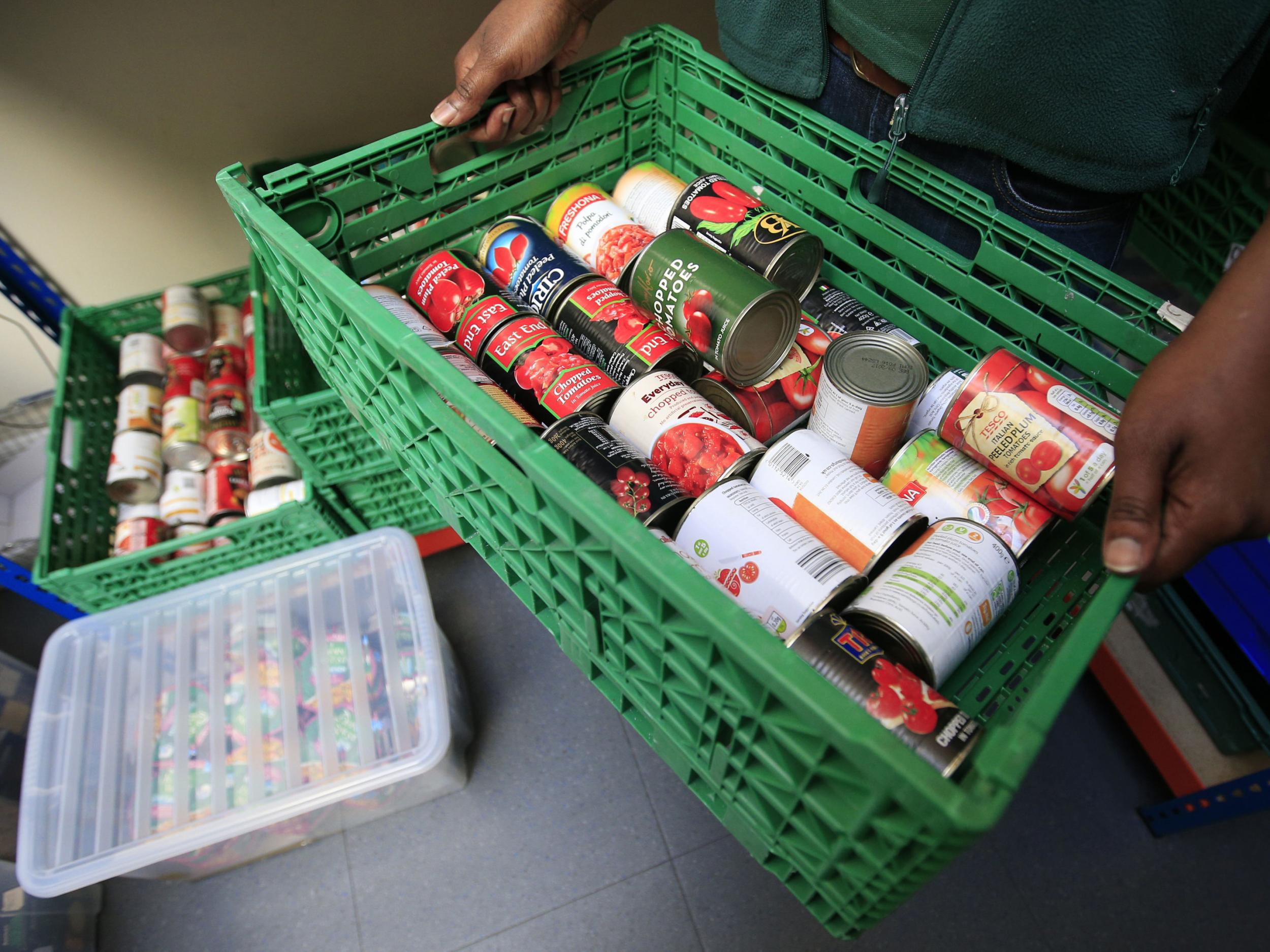Hundreds of 'hidden food banks' reveal true scale of food poverty in UK
At least 651 previously unaccounted-for food banks operating across Britain, findings show

Hundreds of “hidden” food banks are operating in the UK, research has revealed, indicating the true scale of food poverty is higher than previously thought.
A mapping project undertaken by the Independent Food Aid Network (Ifan) showed there were more than 2,000 food banks across the country, of which at least 651 are grassroots organisations operating independently of the Trussell Trust, Britain’s biggest food bank provider.
The Trussell network revealed in April that the number of people accessing their service had risen by seven per cent in the last year, with the charity providing 1,182,954 three-day emergency food supplies to people in crisis between April 2016 and March 2017, compared with 1,109,309 the previous year.
But the new findings indicate the extent of food poverty in the UK is even bigger, revealing that alongside the 1,373 distribution centres operate out of Trussell trust’s 419 food banks, there are 651 “independents” — amounting to a total of 2,024 food banks.
Ifan's research defines a food bank as an organisation that gives out food parcels on a weekly basis, and does not include informal food parcel distribution by social welfare charities, children’s centres, churches, housing associations, hospitals and other groups.
Trussell Trust said last month that the rise in food bank use was largely due to “significant problems” with the roll-out of the new Universal Credit system for administering benefits that was introduced last year, urging that although the system had been piecemeal so far, food banks in areas of partial or full roll-out were reporting significant problems with its impact.
This was shown by the fact that food banks in areas of full Universal Credit roll-out to single people, couples and families, saw a 17 per cent average increase in referrals for emergency food in the past year – more than double the national average of seven per cent.
Benefit delays and changes remained the biggest cause of referral to a food bank, accounting for 43 per cent of all referrals, a rise on last year’s 42 per cent, while the proportion of referrals due to low income increased from 23 per cent to 26 per cent.
Commenting on the findings, Sabine Goodwin, Ifan's researcher, told The Independent: “This a national crisis that cannot be underestimated. People arrive regularly into food banks across the country not having eaten for days while the government hasn't even begun to monitor food poverty.”
Jon May, from Queen Mary University of London and the chairman of Ifan, meanwhile said: “There are now food banks in almost every community, from the East End of London to the Cotswolds.
“The spread of food banks maps growing problems of poverty across the UK, but also the growing drive among many thousands of people across the country to try and do something about those problems.”
Join our commenting forum
Join thought-provoking conversations, follow other Independent readers and see their replies
Comments
Bookmark popover
Removed from bookmarks